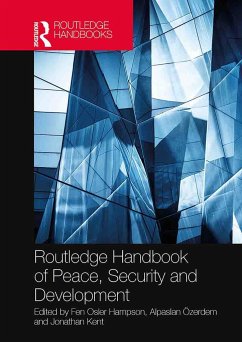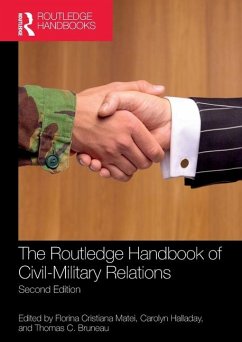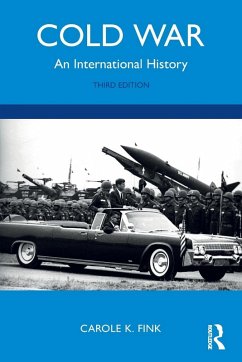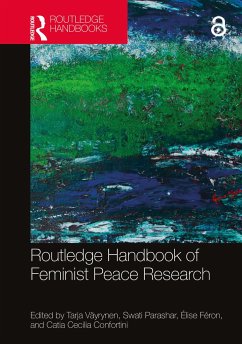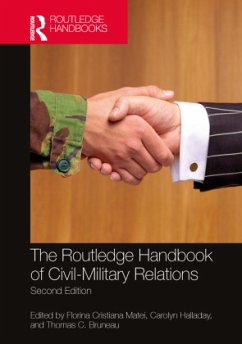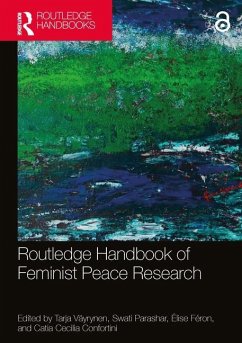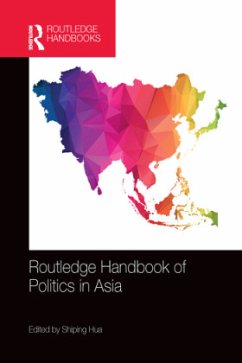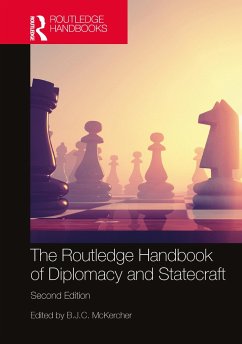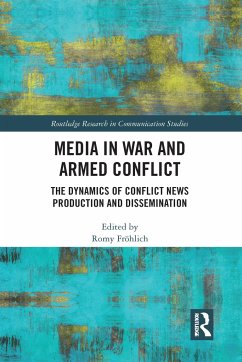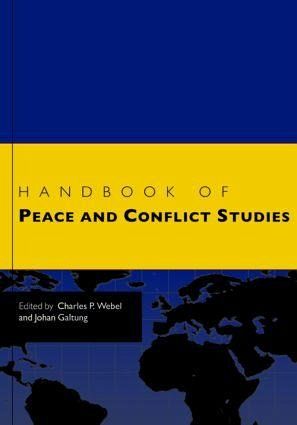
Handbook of Peace and Conflict Studies
Versandkostenfrei!
Versandfertig in 6-10 Tagen
56,99 €
inkl. MwSt.
Weitere Ausgaben:

PAYBACK Punkte
28 °P sammeln!
This major Handbook provides a cutting-edge and transdisciplinary overview of the main issues, debates, state-of-the-art methods, and key concepts in peace and conflict studies today.The fields of peace and conflict studies have grown exponentially since being initiated by Professor Johan Galtung half a century ago. They have forged a transdisciplinary and professional identity distinct from security studies, political science, and international relations.The volume is divided into four sections:understanding and transforming conflictcreating peacesupporting peacepeace across the disciplines. ...
This major Handbook provides a cutting-edge and transdisciplinary overview of the main issues, debates, state-of-the-art methods, and key concepts in peace and conflict studies today.
The fields of peace and conflict studies have grown exponentially since being initiated by Professor Johan Galtung half a century ago. They have forged a transdisciplinary and professional identity distinct from security studies, political science, and international relations.
The volume is divided into four sections:
understanding and transforming conflictcreating peacesupporting peacepeace across the disciplines.
Each section features new essays by distinguished international scholars and professionals working in peace studies and conflict resolution and transformation. Drawing from a wide range of theoretical, methodological, and political positions, the editors and contributors offer topical and enduring approaches to peace and conflict studies.
The Handbook ofPeace and Conflict Studies will be essential reading for students of peace studies, conflict studies and conflict resolution. It will also be of interest and use to practitioners in conflict resolution and NGOs, as well as policy makers and diplomats.
The fields of peace and conflict studies have grown exponentially since being initiated by Professor Johan Galtung half a century ago. They have forged a transdisciplinary and professional identity distinct from security studies, political science, and international relations.
The volume is divided into four sections:
understanding and transforming conflictcreating peacesupporting peacepeace across the disciplines.
Each section features new essays by distinguished international scholars and professionals working in peace studies and conflict resolution and transformation. Drawing from a wide range of theoretical, methodological, and political positions, the editors and contributors offer topical and enduring approaches to peace and conflict studies.
The Handbook ofPeace and Conflict Studies will be essential reading for students of peace studies, conflict studies and conflict resolution. It will also be of interest and use to practitioners in conflict resolution and NGOs, as well as policy makers and diplomats.





